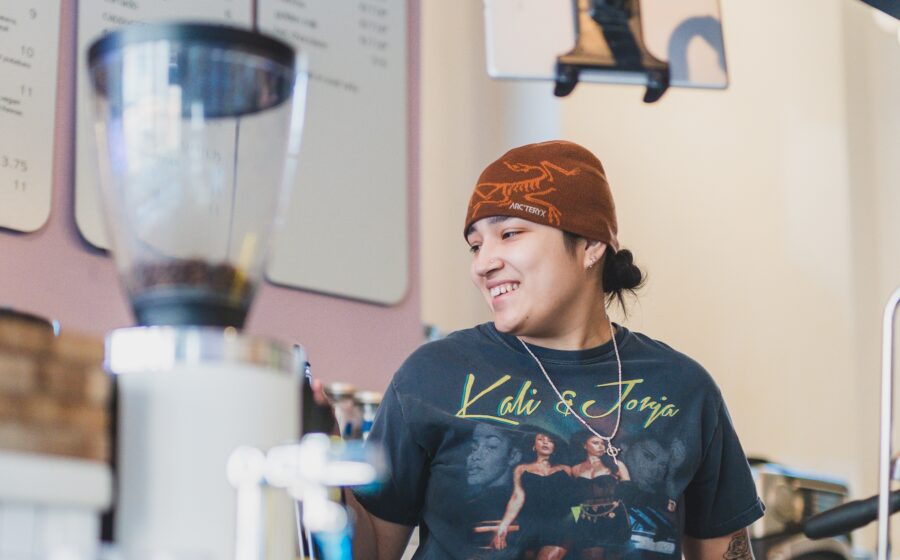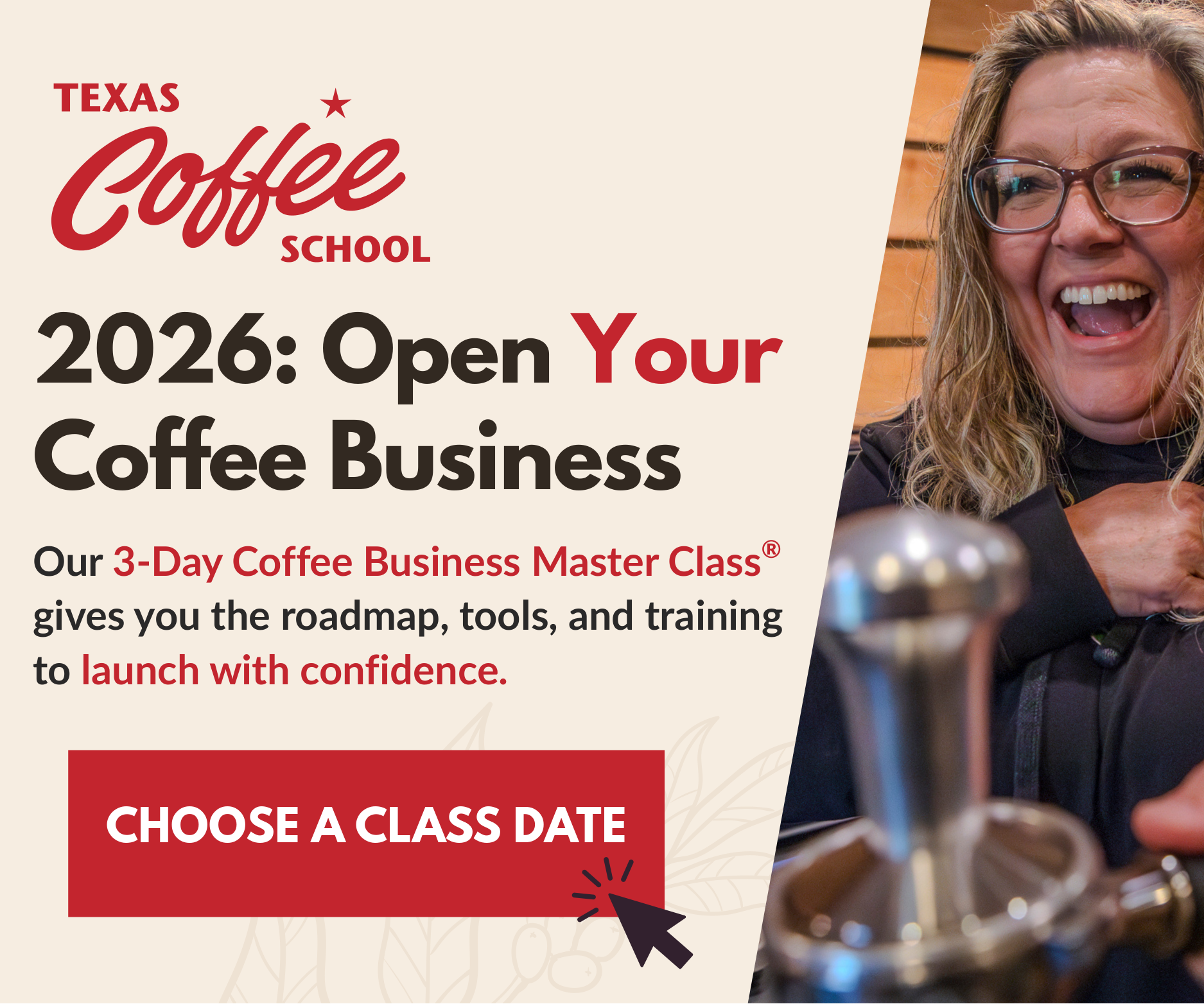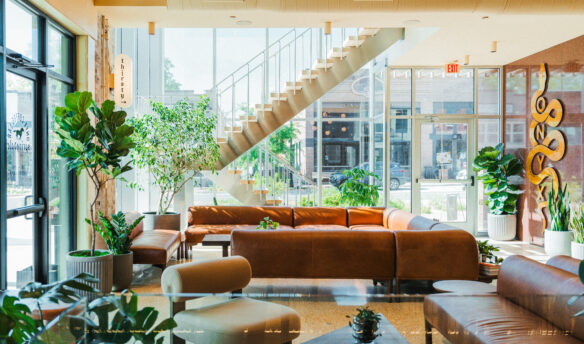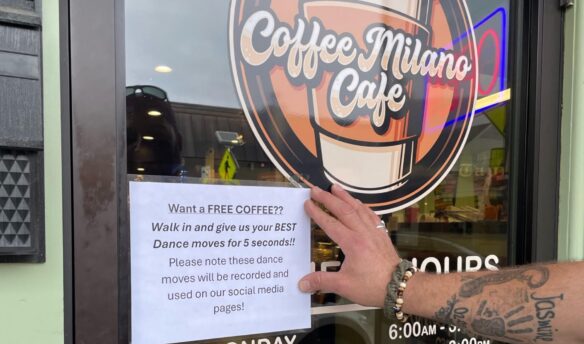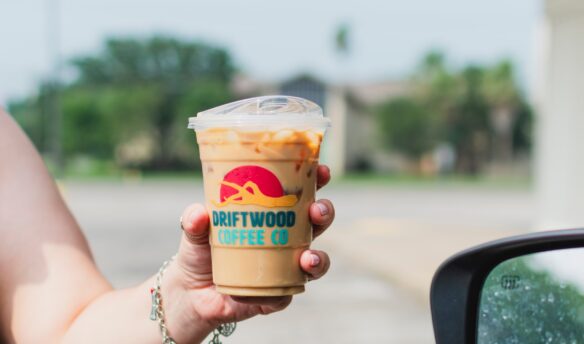In 2020, Tenfold Coffee Company opened its doors in Houston, Texas. Within weeks, it was forced to navigate hurricanes, winter freezes, and the uncertainty of a new pandemic.
After one storm, owner Jacob Ibarra rolled the coffee cart onto the deck and served however he could. “If I have gas or power and water, I will try to open in whatever capacity I can,” he says. “Even if that means putting the coffee cart on the deck so people just can have some sense of normalcy.”
That mindset stuck: Open if possible, meet people where they are, and offer something reliable when not much else feels that way. For Tenfold, this is what brand identity is all about. It has less to do with design and more with the feeling people get when they walk through the door.
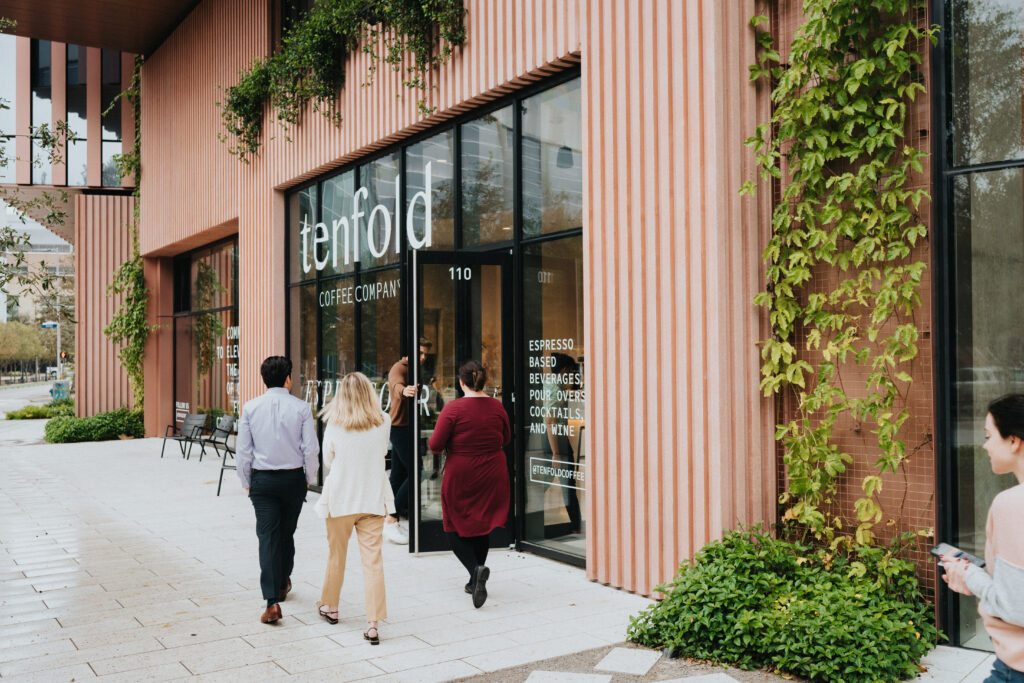
That sense of care—of being noticed, welcomed, and treated like a guest—is what builds loyalty over time. And that’s not something another shop can easily imitate.
Having a strong brand identity means operating with a clear set of values that shape everything, from how customers are welcomed to how the team responds in a crisis. In a landscape shaped by post-pandemic precariousness and rising costs, that clarity can help a business stay true to itself—and adapt without losing its core.
Rooted in Identity
When Tenfold Coffee opened, Ibarra had originally planned to focus on inside seating and a more traditional service setup. But with indoor hospitality off-limits due to the pandemic, he shifted service to the outdoor deck, and invited chef friends for pop-ups. What started as a temporary workaround soon became something more. Food brought people in, helped build community, and became part of what customers associate with Tenfold.
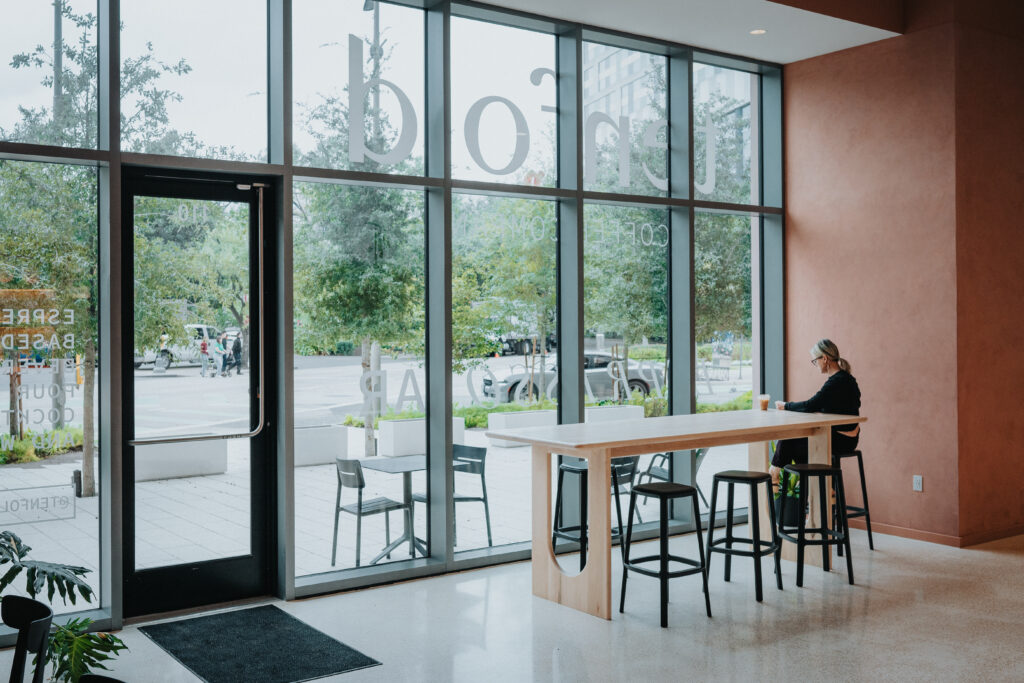
“I’ve recognized that food plays a big part in being in the greater hospitality scene,” Ibarra says. While the business keeps the food menu small, with items like mousse cups, hot-pressed sandwiches, and savory hand pies, nearly all items come from local chef partners.
Tenfold also supplies wholesale coffee to other area businesses. Ibarra sees these relationships, on both the food and coffee sides, as a way to give people more reasons to connect with them. “I think about our cafe like a house,” Ibarra says. “I want to be hospitable to the people who walk in.”
At Story and Soil Coffee in Hartford, Connecticut, owner Michael Acosta had a different entry point into coffee. After running his college cafe and spending time visiting coffee-producing countries, he knew he wanted to open a shop that reflected both the global coffee world and the realities of his community.
“Our first shop was in Hartford, which is historically underserved,” Acosta says. “What got me the most excited was building culture and spaces that celebrate everyone who comes in.”
Hartford wasn’t saturated with specialty coffee, which was part of the appeal. Acosta saw a chance to create a true third place—a spot where people could land between home and work, and where the space itself could grow and change along with them. “You have a vision, you share it, and then things evolve with everything else around us,” Acosta says.
Hospitality That Feels Personal
At both cafes, hospitality shows up in small, intentional ways. Service at Tenfold is designed to feel personal. Staff deliver drinks directly to tables, rather than calling out names at the bar. Customers are greeted and acknowledged as they come and go. These details, Ibarra says, make the experience feel more thoughtful and less transactional. “It just feels better that way,” he says. “Even if it takes a little longer, it feels more dignified.”
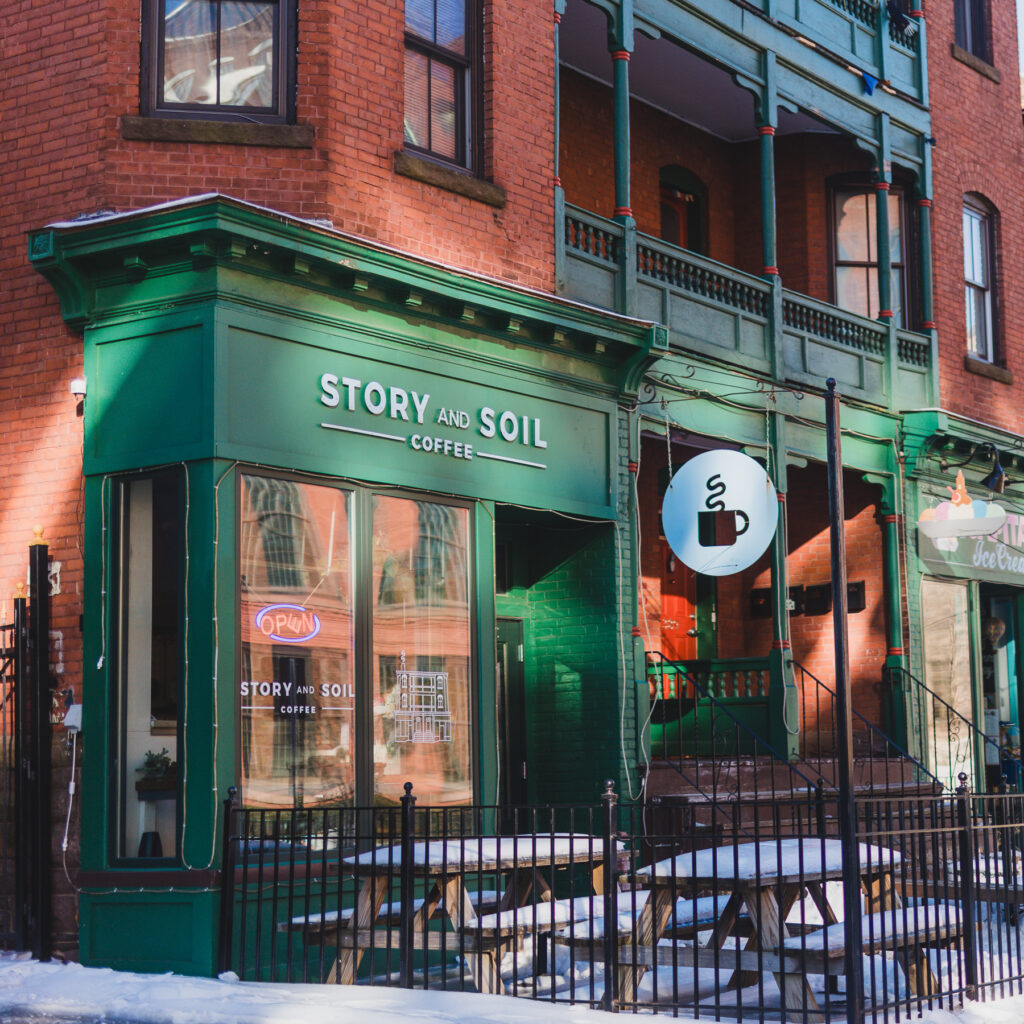
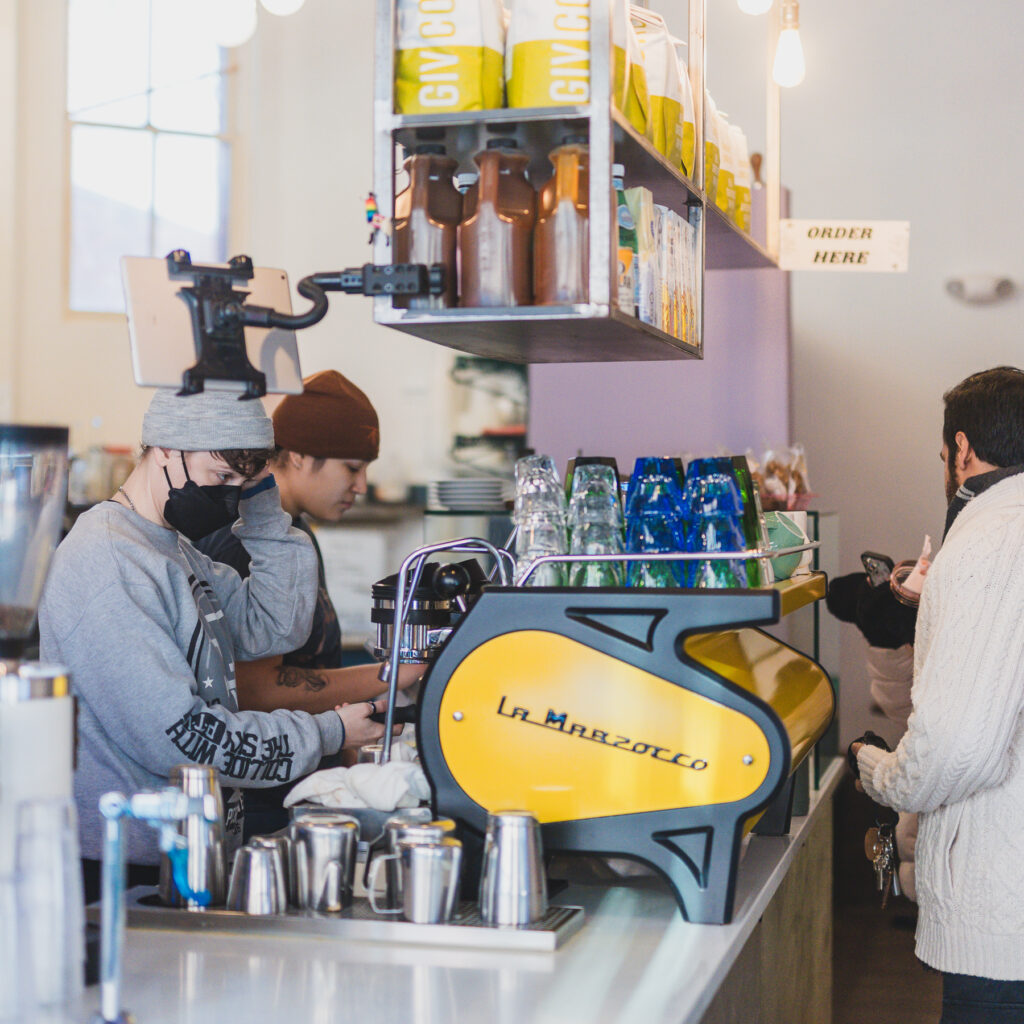
Ibarra sees these choices as part of a larger effort to create a space where people feel noticed and cared for, even in small ways. In a city like Houston, where dining culture often centers restaurants rather than cafes, that attention to detail stands out.
At Story and Soil, the team made a conscious decision early on to make the experience feel easy and accessible, especially for people who might feel intimidated by specialty coffee. That choice showed up in how they talked about the coffee, trained their team, and shaped the space to feel comfortable for anyone who walked in the door. The goal was to create an environment where people felt welcome right from the start, without needing to know all the right terms to order the perfect drink.
Community in Practice
That relationship-building doesn’t stop at the counter. Both cafes have found ways to stay engaged in their communities, whether through events, partnerships, or simply by offering up their spaces.
At Tenfold, the deck that started as a workaround during COVID has become a central feature. It’s where chefs pop up with meals, nonprofits host gatherings, and neighbors come together for everything from real estate mixers to dance parties. As Ibarra sees it, if the space isn’t being used, it might as well be shared. “I’ve had quinceañeras, birthday dance parties, people doing monthly meetings,” he says. “We try to be pretty open.”
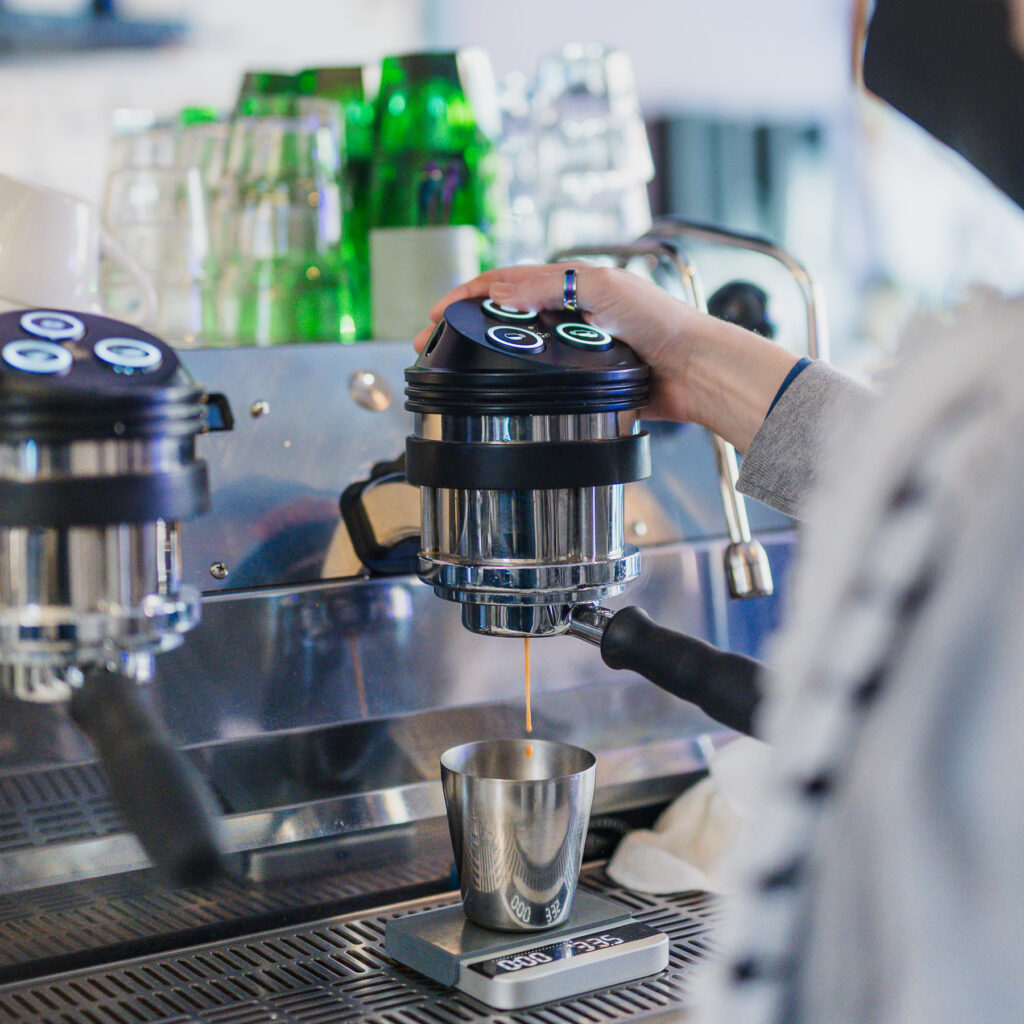
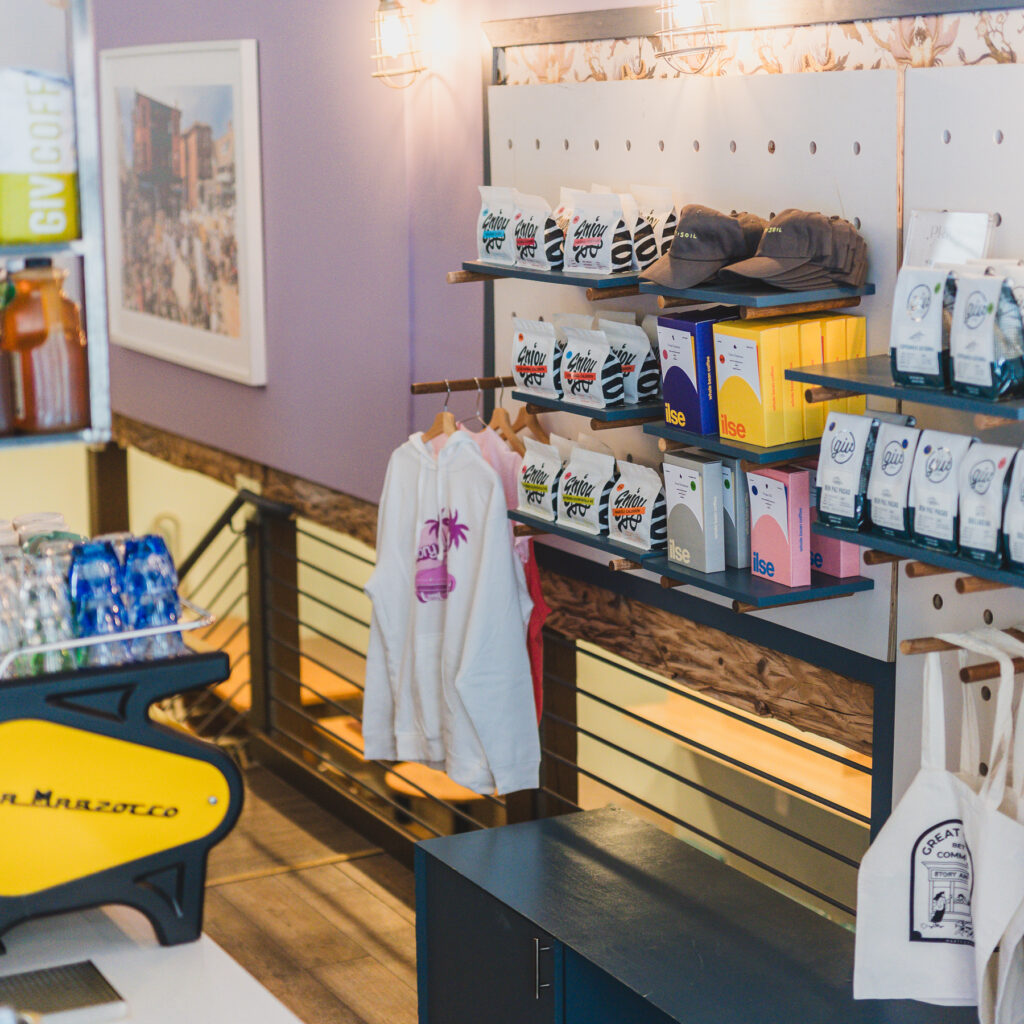
Events are often just another way to support the people who already spend time at Tenfold. “It’s a good way for people to have another space they can frequent that they may already love,” he adds.
At Story and Soil, events often come together quickly and organically. Some are carefully planned, like its recent fundraiser for Trans Day of Visibility. Others happen with a few days’ notice, sparked by an idea from the community or a quick collaboration. What matters is staying responsive. “We just like working with people,” Acosta says. “If someone has an idea, and it aligns with us, we’ll roll with it.”
Both cafes see their spaces as active parts of the communities they serve. Sometimes that means hosting a DJ night, and other times it means raising money for a cause. At both shops, community involvement is built into the day-to-day operations.
Why Brand Identity Matters
Acosta’s early days in coffee were mobile. He ran a nitro cold brew cart at local markets and events, building relationships that would eventually shape Story and Soil. It gave people an early look at his approach to coffee and service. “We had a really strong foundation for wanting to share fantastic coffee,” he says.
Creative drinks were part of the vision from the beginning. Acosta says the team wanted to build a vibrant, seasonal menu that felt exciting and a little unexpected. “This idea of destination drinks has really grown,” he says. “At the heart of it, we just want to create fun drinks that get people excited.”

Now, the team is thinking more intentionally about how the business reflects their values—beyond the menu. “We’re just beginning to figure out how we can support causes we care about and show up in ways that align with what we believe,” Acosta says. “That’s part of it too.”
Ibarra describes hospitality as a kind of humility. “You’re literally putting yourself beneath somebody to produce something for them,” he says. He thinks about the cafe as a home, where people should feel taken care of. That outlook shapes everything, from how drinks are served to how the cafe operates.
For Ibarra, that mindset goes beyond good service to how the space makes people feel. “The fundamentals have to be right, but hospitality is the X-factor,” he says.
